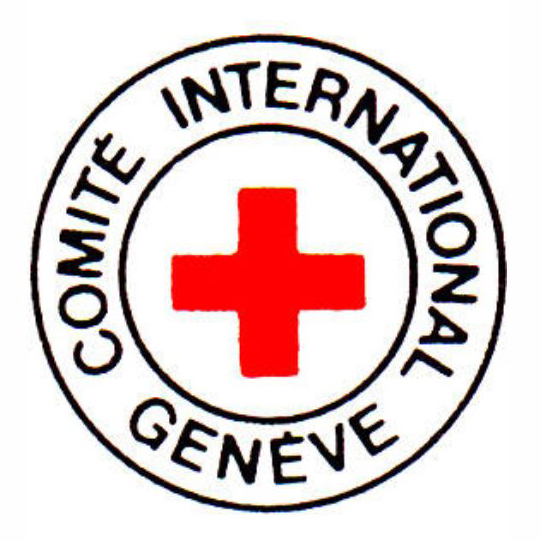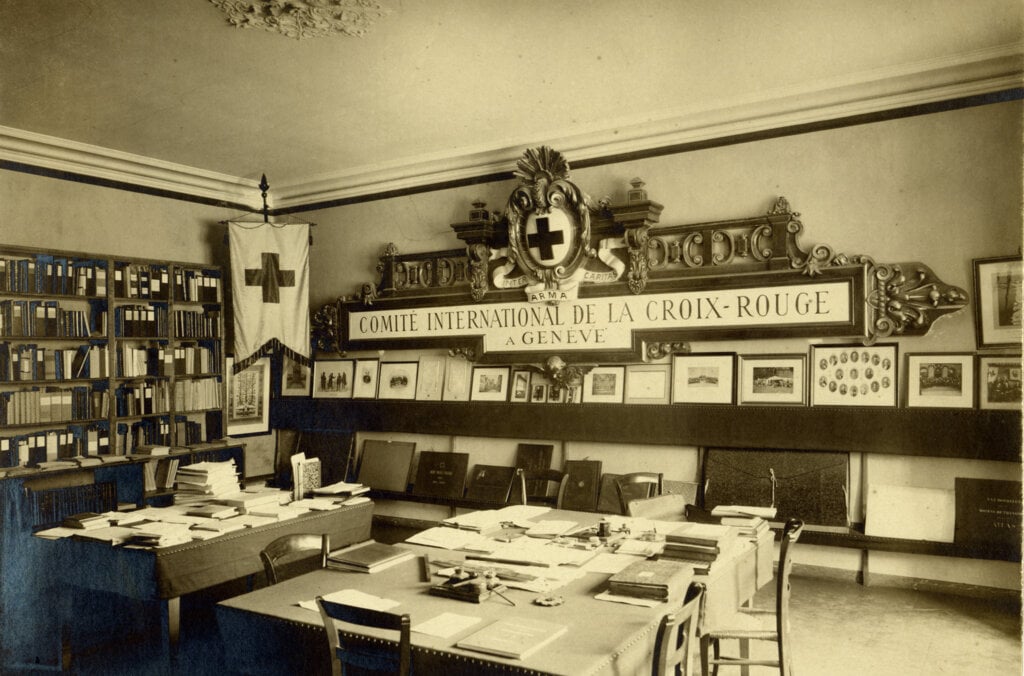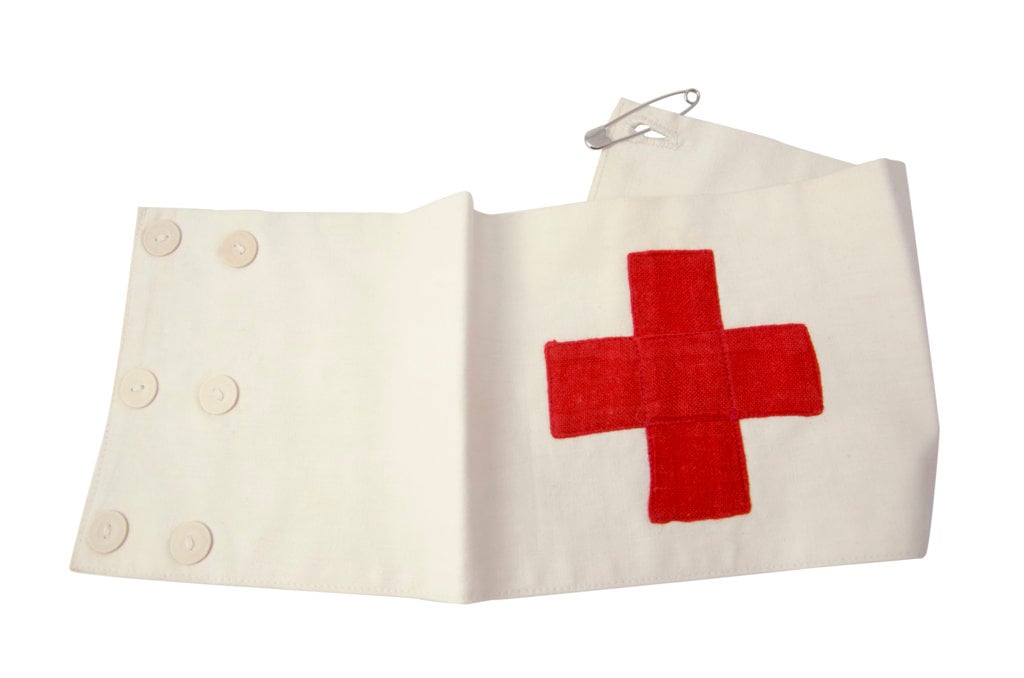International Committee of the Red Cross
Speed read
The International Committee of the Red Cross was awarded the Nobel Peace Prize for the efforts to take care of wounded soldiers and prisoners of war and their families during World War I.

Full name: International Committee of the Red Cross
Native name: Comité international de la Croix Rouge
Founded: 1863, in Geneva, Switzerland
Date awarded: 10 December 1917
Dunant’s ideas live on
The International Committee of the Red Cross was founded on the initiative of Henry Dunant (Switzerland), 1901 Nobel Peace Prize laureate. Then, as now, the organisation consisted only of Swiss citizens, and its main purpose was to safeguard the principles of the Geneva Convention of 1864. Its insignia – a red cross on a white field – symbolizes protection for friend and foe alike. One by one, nations adopted the Geneva Convention and established national Red Cross committees. The leadership of the ICRC gained widespread recognition, even though the organisation did not have an international mandate. When WWI broke out in 1914, the ICRC assumed the daunting task of not only ensuring compliance with the Geneva Convention, but also working to safeguard the rights of prisoners of war.
"The decision of the Norwegian Nobel Committee will surely be met with widespread approbation in all civilized countries, warring and neutral alike."
Swedish newspaper Stockholms Dagblad, 11 October 1917.
Guardian of the Geneva Convention
During WWI, the ICRC continually sent appeals and protests to the warring nations, demanding that the Geneva Convention rules be observed. Medical personnel taken prisoner were to be immediately returned to their division or home country. The Committee also protested the torpedo attacks against hospital ships. The ICRC was lauded for successfully arranging the exchange of seriously wounded soldiers through Switzerland, and for its efforts to give special priority given to men with families.
"The International Committee in Geneva has unceasingly reminded the world that the people who are intent upon slaying each another nonetheless are brothers, and that only peace will provide them with the happiness all are so fervently seeking."
Swiss Government, Nomination proposal for the ICRC, 1917.
Aid to prisoners of war
During WWI, the care of prisoners of war lay outside the scope of the Geneva Convention, but the ICRC established an office in Geneva to assist them nevertheless. One important task was to gather information about the prisoners and send it to their next of kin. The office sent direct inquiries to camp commanders and heads of field hospitals. By the spring of 1917, thousands of Red Cross volunteers had sent overcommuniqués to families in the warring countries.

Progress
The ICRC was gradually strengthened after 1864. More and more states ratified the Geneva Convention of 1864, which from 1906 also included war at sea, and the Committee in Switzerland had authority over the national Red Cross organisations. From 1869, the ICRC published the journal Bulletin, with news from the national organisations. The Red Cross participated in several operations before WWI; during the German-French war of 1870-1871 and the Balkan wars of 1912-1913. In 1908, emergency help was given for the earthquake at Messina, Italy, where over 100,000 people lost their lives.

"The independent position assumed by the International Committee is one of the reasons for its happy success; it has not provoked the mistrust of the governments which it has consulted."
Peace laureate Louis Renault, Nomination proposal for the ICRC, 1917.
Learn more
Read the history of the Red Cross.
Read more about the work of Henry Dunant and the founding of the Red Cross.
Play a game!
The Red Cross Movement
Can people behave as they like during times of war? No, they can't. In this game, your mission as a camp commander is to run a prisoner of war camp without violating any human rights. You must follow the humanitarian standards outlined in the Third Geneva Convention. Have a try!
Disclaimer: Every effort has been made by the publisher to credit organisations and individuals with regard to the supply of photographs. Please notify the publishers regarding corrections.
Nobel Prizes and laureates
Six prizes were awarded for achievements that have conferred the greatest benefit to humankind. The 14 laureates' work and discoveries range from quantum tunnelling to promoting democratic rights.
See them all presented here.
